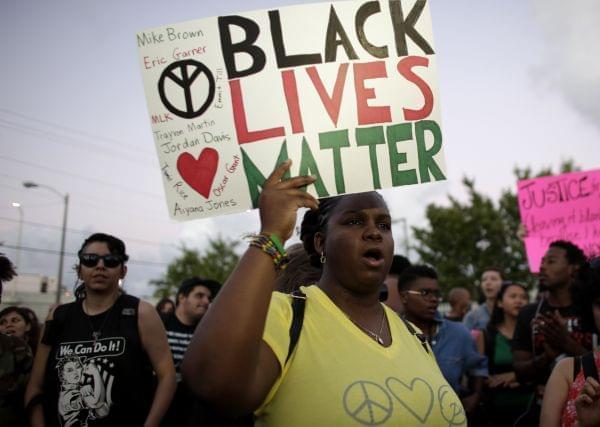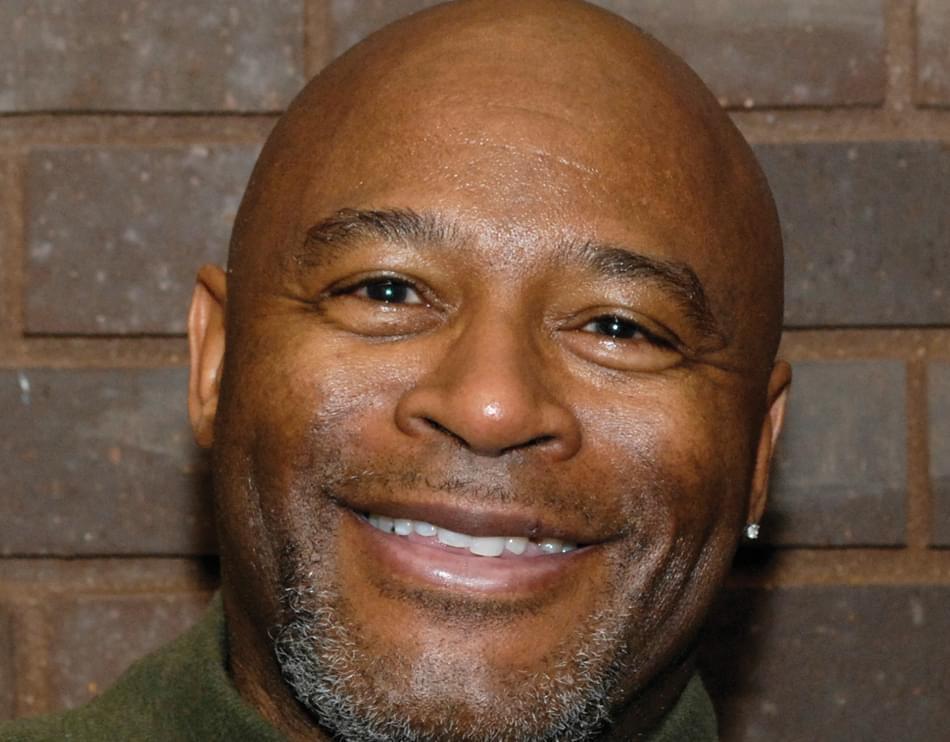What #BlackLivesMatter Means One Year Later

Desiree Griffiths, 31, of Miami, holds up a sign saying "Black Lives Matter", with the names of Michael Brown and Eric Garner, two black men recently killed by police, during a protest Friday, Dec. 5, 2014, in Miami. People are protesting nationwide against recent decisions not to prosecute white police officers involved in the killing of black men. (AP Photo/Lynne Sladky)
It’s been a year since Michael Brown’s death and the birth of the Black Lives Matter movement. Sundiata Cha-Jua is African American Studies professor at the University of Illinois. He explains how black lives matter went from a hashtag to the early stages of a social movement, and what comes next.
“I’m not sure that I would call it a movement, well maybe it is a movement in the sense that there are many different organizations and tendencies operating around a slogan, Black Lives Matter. The question is what are the components? What are the goals? We’ve yet to see the platform but that’s indicative of the early stages of any social movement,” said Cha-Jua.
The Black Lives Matter hashtag has drawn attention to the issue of police brutality. In the past year, a number of videos have gone viral showing sometimes lethal force against African Americans; but there's been confusion over the meaning of the words "Black Lives Matter" that has led to the controversial hashtag, #AllLivesMatter.

“The strategies that led us to build what was built in the sixties and seventies took advantage of the latest technology, but centered around a people approach."
-Sundiata Cha-Jua
“Obviously the people who created the slogan Black Lives Matter value life." said Cha-Jua. "The Black Lives Matter slogan speaks to the particularity of the use of violence against African Americans in such a disproportionate way. Not just simple coercion, but deadly force,” explained Cha-Jua.
The Black Lives Matter movement has changed the conversation around racialized violence. Cha-Jua said since the hashtag started, there has been more awareness among the white population that black people aren't making up the problem of mistreatment by police.
But there's something unique about the Black Lives Matter movement, and the people behind it.
“The activists have become younger, and that is very, very, very significant. The activists have also become increasingly women. That is very, very important," said Cha-Jua.
"The majority of African American population is increasingly female, so when you say you want to speak for the majority, you’re going to have to speak from a perspective that is largely derived from how black women understand the world and from their experiences,” Cha-Jua said.
According to Cha-Jua, the Black Lives Matter slogan has a broad reach across social media, but he says that's not enough. He argues that the movement lives too much online, and not enough in the actual communities of African Americans.
“The strategies that led us to build what was built in the sixties and seventies took advantage of the latest technology, but centered around a people approach," said Cha-Jua, "That meant you had to knock on people’s doors, sit down with them, talk with them, and if these kids think that they can tweet their damn way to freedom, then they are sorely misguided.”
Black Lives Matter expanded the conversation about racialized violence in the United States, and Cha Jua says cases are now viewed in the context of a larger problem… not as isolated incidents.
However, to make a lasting difference, he says the movement has to address the roots of the problems that started that discussion.
“Black Lives Matter has become something that’s very easy to identify, and I’m going to say it again, it’s more hashtag than reality," said Cha-Jua.
"What’s happening down on the ground in local communities? What are the kinds of demands be put down around policing, housing, education, ending food deserts? What’s the internal strategy of the African American community?" asked Cha-Jua.

